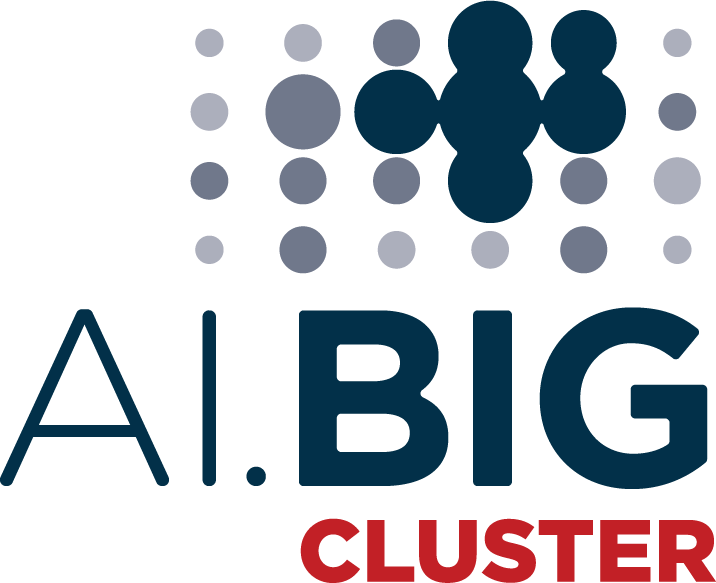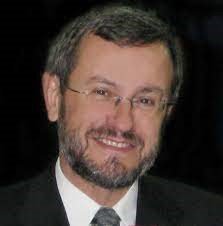Invited Lectures, Tutorials, Short Courses, Workshops
Description
Artificial Intelligence (AI), and Machine Learning (ML) in particular, advance very rapidly, at a pace that even specialists have difficulties in following it. Its impact, particularly through Large Language Models and Generative AI affect almost all scientific disciplines. AI has a huge social impact, e.g., on education, labor market, politics and governance. Given the fast AI evolution, both industry and academia are interested in fast personnel reskilling and upskilling on AI edge technologies. This event, co-organized by International AI Doctoral Academy (AIDA) and AUTH, will cater these advanced AI education needs.
When?
14-18 July 2025
Where?
AIDA AICET2025 is a hybrid (local/remote participation event. Local participation: Aristotle University of Thessaloniki (AUTH), Thessaloniki, Greece. Remote participation using a zoom link is also possible.
Structure
AIDA AICET2025 will consist of cutting-edge invited and/or open-call peerly reviewed lectures, regular/special sessions, courses and tutorials, all having tutorial/review value:
a. invited lectures
b. regular open-call peerly reviewed lectures organized in regular sessions
c. special sessions (invited and/or open-call reviewed ones)
d. half-day tutorials (invited and open-call reviewed ones)
e. 1- or 2-day short courses (invited and open-call reviewed ones)
f. Asynchronous e-courses (invited and open-call reviewed ones that start on-AICET2025 and finish well after its end)
g. Workshops on special topics.
AIDA AICET2025 will be a hybrid (local and e-participation) event. Both lecturer and registrant participation can be local (at AUTH campus) or on-line.
AI/ML Program Topics
AIDA AICET2025 program will cater educational needs to one or more of the following topics (non-exclusive list):
- Deep Learning
- Generative Artificial Intelligence
- Large Language Models
- Trustworthy AI
- Explainable AI
- Distributed/decentralized AI
- Networked Intelligence
- Machine Learning
- Foundations of Artificial Intelligence
- Knowledge Representation and Problem-Solving
- Reasoning and planning
- Computer Vision
- Natural Language Processing and Speech Analysis
- AI Ethics and Governance
- Reinforcement Learning and Sequential Decision-making
- Human-Centered Machine Learning
- AI for Music/Sound Analysis and Synthesis
- Human-Centered Media Analysis
- AI and Robotics
- AI and Games
- AI in Health Sciences
- AI in Markets and Finance
- AI in Humanities
- Deep Arts
Technical Program (to be updated)
Tentative initial AIDA AICET 2025 lecture and course offer list so far (to greatly expand, be updated and finalized) organized in tracks:
Invited lecture track
- From Statistical Relational to Neurosymbolic Artificial Intelligence
- Human Simulation: From Biomechanics to AI
- World Models, Causality, and Physics: Going from Large Foundation to Large Reasoning Models
- Trustworthy Machine Learning in Multimodal AI Applications: Case Studies and Perspectives
- On Dataset Distillation: When Less is More
- Expanding Architectures for Continual Learning
- AI assistants at our rescue
- Computer Vision and AI Techniques for Observing and Interpreting Aspects of Human Presence
- Generative AI for Animating 3D Human Face and Body Behaviors
- Looking into the Future: Forecasting Quantities with Deep Learning
- Quantization of Vision Transformers for Edge Computing
- AI University Education
- On the possible outputs of human brains and intelligent machines
- AI regulation and liability
AI Workshop track
AI Core track
- Short course on Advanced Deep Learning
- Tropical Algebra and Geometry for Machine Learning and Optimization (tutorial)
- Geometric Learning: Foundations and Applications (tutorial)
- Short e-course on Cloud/Edge Computing for Deep Learning and Big Data Analytics
- A Learning Saga: From Fourier to Deep Learning (tutorial)
- Adversarial vulnerability of Deep Neural Networks: Attacks, defenses, challenges (tutorial)
- Quantitatively Assessing Explainable AI for Deep Neural Networks (tutorial)
- Hardware/Software Architecture for Accelerating AI on FPGAs (tutorial)
AI applications track
- Introduction to Artificial Social Intelligence (tutorial)
- Short course on Neutral and Generative Information Retrieval
- Quantum computing and AI (tutorial)
- Robot Learning for Embodied Intelligence (tutorial)
- Short course on Big Data Analytics for Natural Disaster Management
- Short course on Deep Learning and Computer Vision for Industrial Infrastructure Inspection
- Multimedia Forensics: From Statistical Signal Processing to Deep Learning and Explainable Artificial Intelligence (tutorial)
- Short course ‘AI for Neuromarketing’
AI reskilling/upskilling and industrial courses track
- Programming Short Course and Workshop on Deep Learning, Computer Vision and Big Data Analytics
- NVIDIA workshop on ‘Generative AI with Diffusion Models’ (programming short course)
- NVIDIA workshop on ‘Building Transformer-Based Natural Language Processing Applications (programming short course)
- NVIDIA DLI short course ‘Computer Vision for Industrial Inspection’
- How to work with Language technologies: Practical approach (tutorial)
Social aspects of AI. Ethical AI track
- Special session on ‘AI and Disinformation’
- AI bias: overview, measurement, mitigation and application to computer vision (tutorial)
- Short course: ‘Using ChatGPT as a (meta-)cognitive tool for learning’
- AI Science and Engineering and its Impact on the Society and the Environment (asynchronous e-course)
- Applying Design Thinking in AI Research for Positive Social Impact (tutorial)
Call for Lectures/Tutorials/short courses
Well qualified AI scientists and/or engineers (typically PhD holders, as per AIDA course quality guidelines) are welcomed to submit proposals for a, c, d, e, by sending a title/abstract and possibly a very short (one paragraph) CV to pitas@csd.auth.gr using the following form:
Registration (to be updated)
Registration will be for: a) the AIDA AICET symposium, as well as b) for individual AIDA AICET2025 tutorials or short courses. Different registration rates will be foreseen for students/professionals and for local/remote participation. Registration fees will be used to cover the related organization/organizer expenses. It is a non-profit event and its surplus will be used to fund AIDA management and activities (as it is typically done by all non-profit scientific societies).
Supported by
AIDA AICET2025 is technically sponsored by TEMA, AI.BIG cluster, SIMAR R&D projects and AIDA.



Organizing committee
Chair: Prof. Ioannis Pitas pitas@csd.auth.gr, Chair of the International AI Doctoral Academy (AIDA), Chair of the Artificial Intelligence and Information Analysis (AIIA) Lab, Department of Informatics, Aristotle University of Thessaloniki, Greece.
 Short CV: Prof. Ioannis Pitas (IEEE fellow, IEEE Distinguished Lecturer, EURASIP fellow) received the Diploma and PhD degree in Electrical Engineering, both from the Aristotle University of Thessaloniki (AUTH), Greece. Since 1994, he has been a Professor at the Department of Informatics of AUTH and Director of the Artificial Intelligence and Information Analysis (AIIA) lab. He served as a Visiting Professor at several Universities.
Short CV: Prof. Ioannis Pitas (IEEE fellow, IEEE Distinguished Lecturer, EURASIP fellow) received the Diploma and PhD degree in Electrical Engineering, both from the Aristotle University of Thessaloniki (AUTH), Greece. Since 1994, he has been a Professor at the Department of Informatics of AUTH and Director of the Artificial Intelligence and Information Analysis (AIIA) lab. He served as a Visiting Professor at several Universities.
His current interests are in the areas of computer vision, machine learning, autonomous systems, intelligent digital media, image/video processing, human-centred computing, affective computing, 3D imaging and biomedical imaging. He has published over 970 papers, contributed to 46 books in his areas of interest and edited or (co-)authored another 15 books. He has also been member of the program committee of many scientific conferences and workshops. In the past he served as Associate Editor or co-Editor of 23 international journals and General or Technical Chair of 5 international conferences. He delivered 129 keynote/invited speeches worldwide. He co-organized 38 conferences and participated in technical committees of 291 conferences. He participated in 75+ R&D projects, primarily funded by the European Union and is/was principal investigator in 47 such projects. He is the coordinator of the Horizon Europe R&D project TEMA ( https://tema-project.eu/) , AUTH principal investigator in H2020 R&D projects AI4Media (https://www.ai4media.eu/ one of the 4 H2020 ICT48 AI flagship projects) and Horizon Europe R&D projects AI4Europe (https://www.egi.eu/project/ai4europe/), SIMAR (https://simar-project.eu/). He is chair of the International AI Doctoral Academy (AIDA) (https://www.i-aida.org/). He was chair and initiator of the IEEE Autonomous Systems Initiative (https://ieeeasi.signalprocessingsociety.org/). He has 37300+ citations to his work and h-index 92+.
Technical Program Chair: Prof. Stratis Gavves, E.Gavves@uva.nl, University of Amsterdam
Special Session Chair: Prof. Evangelos Kanoulas, E.Kanoulas@uva.nl, University of Amsterdam
 Short CV: Evangelos Kanoulas (https://staff.fnwi.uva.nl/e.
Short CV: Evangelos Kanoulas (https://staff.fnwi.uva.nl/e.
Education Chair: Prof. Stefano Berretti stefano.berretti@unifi.it, Chair of the Educational Planning Committee of the International AI Doctoral Academy (AIDA), University of Firenze, Italy.
 Short CV: Stefano Berretti is an Associate Professor at the Department of Information Engineering of the University of Florence, Italy. Since 2017 he got the habilitation as full professor. He was a visiting professor at the University of Lille, France, and at the University of Alberta, Canada, and also Adjunct Professor at the Kerala University of Digital Sciences, Innovation and Technology (India), 2021-2023 and member of the Board of Studies (BoS), School of Computer Science and Engineering (SoCSE), Kerala University of Digital Sciences, Innovation and Technology (Digital University Kerala (DUK)). The research interests of Stefano Berretti focus on 3D computer vision methods for face and facial expression recognition, biometrics, human behavior understanding, face reconstruction and generation in 3D and 4D, geometric methods for shape analysis, and modeling. On these themes, he has published over 230 articles in peer reviewed international journals and conference proceedings. He organized workshops on “Learning with few or without annotated face, body, and gesture data” (LFA at IEEE FG 2023 and 2024), “Generation of Human Face and Body Behavior” (GHB at WACV 2021, ICIAP 2023). He has been a general chair of The Eurographics Symposium on “3D Object Retrieval” (3DOR) 2022, and of the Conference on “Smart Tools and Applications in Graphics” 2021 and has served as an area chair for ACM Multimedia (2020, 2021, 2022, 2023, 2024), IEEE Face and Gesture Recognition (2019, 2020), and program chair for the Int. Conf. on Smart Multimedia (2022, 2024). He organized special issues on the Computers & Graphics journal, ACM TOMM, IEEE TII, IEEE TCE, IEEE JBHI, and ACM TALLIP. He is the Associate Editor in Chief for Digital Communications of the IEEE Trans. on Circuits and Systems for Video Technology, an Associate Editor of the ACM Trans. of Multimedia Computing, Communications, and Applications (ACM TOMM), and of the IET Computer Vision journal. He was also the Information Director of ACM TOMM. He is a Senior member of IEEE.
Short CV: Stefano Berretti is an Associate Professor at the Department of Information Engineering of the University of Florence, Italy. Since 2017 he got the habilitation as full professor. He was a visiting professor at the University of Lille, France, and at the University of Alberta, Canada, and also Adjunct Professor at the Kerala University of Digital Sciences, Innovation and Technology (India), 2021-2023 and member of the Board of Studies (BoS), School of Computer Science and Engineering (SoCSE), Kerala University of Digital Sciences, Innovation and Technology (Digital University Kerala (DUK)). The research interests of Stefano Berretti focus on 3D computer vision methods for face and facial expression recognition, biometrics, human behavior understanding, face reconstruction and generation in 3D and 4D, geometric methods for shape analysis, and modeling. On these themes, he has published over 230 articles in peer reviewed international journals and conference proceedings. He organized workshops on “Learning with few or without annotated face, body, and gesture data” (LFA at IEEE FG 2023 and 2024), “Generation of Human Face and Body Behavior” (GHB at WACV 2021, ICIAP 2023). He has been a general chair of The Eurographics Symposium on “3D Object Retrieval” (3DOR) 2022, and of the Conference on “Smart Tools and Applications in Graphics” 2021 and has served as an area chair for ACM Multimedia (2020, 2021, 2022, 2023, 2024), IEEE Face and Gesture Recognition (2019, 2020), and program chair for the Int. Conf. on Smart Multimedia (2022, 2024). He organized special issues on the Computers & Graphics journal, ACM TOMM, IEEE TII, IEEE TCE, IEEE JBHI, and ACM TALLIP. He is the Associate Editor in Chief for Digital Communications of the IEEE Trans. on Circuits and Systems for Video Technology, an Associate Editor of the ACM Trans. of Multimedia Computing, Communications, and Applications (ACM TOMM), and of the IET Computer Vision journal. He was also the Information Director of ACM TOMM. He is a Senior member of IEEE.
Management: Ms. Efi Patmanidou, Project Manager, epatman@csd.auth.gr epatmanidou@iti.gr
